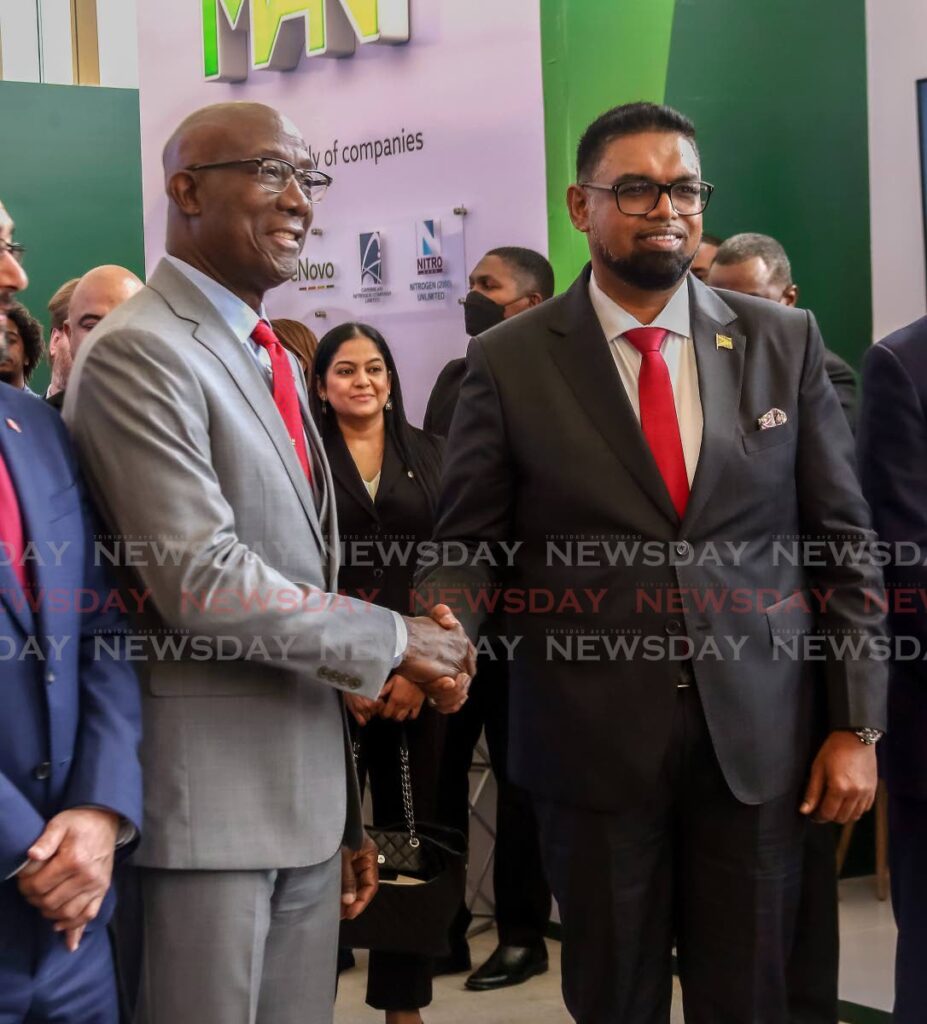Calling out bias in energy affairs

GUYANA’S President Dr Mohamed Irfaan Ali is a fascinating leader who, like Barbados Prime Minister Mia Mottley, makes provocative and useful interventions in global discourse.
Dr Ali’s address at the TT Energy Conference at the Hyatt Regency, Port of Spain, this week was no exception.
“In answering the question as to the remaining life of fossil fuel and natural gas, when we have this open and honest conversation, we will see how lopsided that conversation is in relation to the end of fossil fuel and gas,” Ali said, as he suggested bias and discrimination among global players.
The Guyanese president urged the region’s oil and gas producers to speak out against the relative lack of investments coming to the Caribbean, even as toxic, polluting coal plants are resuming operations globally.
There is merit in examining the question of investment through such a lens.
As a region, the Caribbean has long been associated with tourism and leisure. In the eyes of the world, we are more known for our white sand beaches and blue seas. Or else, we are seen as a kind of offshore haven in terms of financial arrangements, the nominal location of intricate corporate structures devised for various purposes.
The fact that the Caribbean has and continues to be a player in the energy market is something which few globally might know offhand without expert knowledge of the area.
This is more so in relation to Dr Ali’s country which, despite sitting on vast mineral reserves for decades, does not have a strong global reputation for extractive industries in some quarters, despite being one of the world’s largest bauxite producers. The recent confirmation of vast oil and gas reserves is also relatively new.
The remarks of the Guyanese president suggest there have been some hurdles to overcome in the process of gaining investor confidence, outside of the belief that we are witnessing the end days of oil and gas.
We are near the end of this sector and we must, as a matter of necessity, gird our loins and prepare to develop alternative industries. But, as often pointed out, we are still in a transitionary period.
It is notable that Dr Ali’s remarks come at a moment when this country is grappling with conflicting imperatives in relation to medium to long-term economic development.
As we entered 2023, Minister of Finance Colm Imbert assured the country that things would get better, reflecting the bolstered revenues triggered by the petrochemical sector last year.
However, this week the Prime Minister presented a more tempered outlook.
“There are difficult times ahead and you have to prepare for the difficult times,” he warned at a party event. At the same event attended by Dr Ali, he noted a more mixed energy revenue picture.
Both leaders have to do more than speak about the difficult realities we face. They need to plan a clear pathway to navigate this uncertain terrain that frees us of past economic models.

Comments
"Calling out bias in energy affairs"